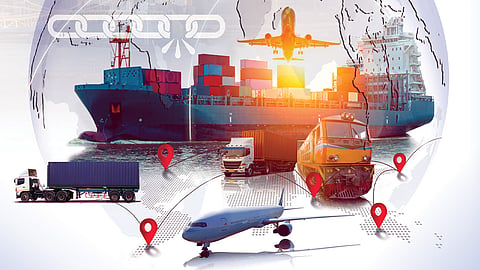Election Year 2024 Likely to Impact Supply Chains: Report
Everstream Analytics, the global supply chain insights and risk analytics company, HAS unveiled the Election Year Impact Report, which offers an in-depth analysis on how the 2024 global elections will create new supply chain risks associated with global trade, commodity supplies and cyberattacks.
This year, election voters across the United States, Mexico, India, Taiwan, Indonesia, and the United Kingdom will cast an unprecedented number of ballots.
The 2024 Election Year Impact Report, based on Everstream’s proprietary risk intelligence, warns of potential supply chain disruptions associated with this year’s record number of elections.
The findings show that while direct impact may not become clear until weeks or even months after the elections have taken place, organizations must prioritize supply chain scenario planning to foresee and effectively respond.
“This year, regional economic powerhouses and some of the world’s largest economies will cast ballots that could significantly impact global populations; as such, organizations must operate with heightened awareness around resulting supply chain impacts,” said David Northington, CEO of Everstream Analytics.
Border Tensions
The 2024 elections have implications for businesses using the world’s busiest trade routes: the Taiwan Strait, and the U.S.-Mexico border. Of importance:
The USMCA is scheduled for review in July 2026 to evaluate Mexico’s record of compliance with the regulation, with U.S. leaders pushing for improvement.
Supply Chains Make Up 40% to 80% of an Organisation’s Total Carbon Emissions
A bipartisan border bill that would have attempted to restrict migrant flows was blocked in the U.S. Senate, hindering U.S. ability to rein in migrant flows until after the elections.
Regardless of Mexico’s election outcome, migrant-related border disruptions are likely to continue and diplomatic relations with the United States would be strained if the crisis persists.
The U.S. elections are unlikely to ease China trade tensions. Shipment seizures under the Uyghur Forced Labor Prevention Act (UFLPA) that targets forced labor in China reached their second-highest monthly level in January, with over $240M worth of products seized.
Commodity Supplies
Impact on metal and agricultural commodities is expected in Argentina, India, Indonesia, and the United States, where candidates have promised to employ trade protectionism once in office as an appeal to key voting blocs. Of note,
The mining sector is one to watch ahead of the 2024 elections, particularly in Mexico (June 2, 2024) and the United States (November 5, 2024.)
Increased demand for metal commodities (specifically those used for electric vehicle production) has led to rising tensions between mining industry advocates and environmentally conscious lawmakers in the U.S. and Mexico.
Mexico, the world’s largest producer of silver, and a top-ten global producer of lead, zinc, gold and copper, use of open-pit methods for production are under intense scrutiny.
A key voting issue for spring elections (April-June) in India is the rising cost of staple foods, which has increased food insecurity nationwide. Existing policies put in place by the current administration have constrained the global supply of sugar, as India is the world’s second-largest sugar producer.
With export controls in place to increase domestic supply and deflate prices, we can expect that increased global prices and lower supplies will persist.
Global Cyber Risk
National elections present a prime opportunity for cybercriminals and foreign nation-state attackers to wield influence across borders and destabilize societies. Findings confirm impacts across ports, the aviation sector and manufacturing. In particular,
Cyber-attacks on critical infrastructure have increasingly gained popularity as a target of choice for bad actors. The high-profile nature of attempts to disrupt the industries, facilities, and organizations essential to a functional society makes critical infrastructure an attractive target.
Both the United States and Taiwan are at a high risk-level for attempted cyberattacks amid national elections.
The number of attempted cyberattacks on Taiwanese government institutions, technology and critical infrastructure targets doubled from 1,700 to more than 4,300 incidents in the 24-hour period before the country’s national election on January 13, 2024.
Another 1,000 cyber incidents were recorded on the actual Election Day. Further, the Port of Los Angeles, the busiest seaport, faces an average of 54 million cyber-related intrusion attempts per month.
The growing likelihood and resulting severity of a nation-targeted attack in the United States has led the current administration to issue an executive order that shieled port interference attempts. Port operators are required to report all cyberattacks to the Coast Guard Cyber Command.
For the full breakdown of insights and analysis, download a copy of the 2024 Election Year Impact Report, here.
Read More: AI is Key to Safeguarding Healthcare Supply Chains: Study


